Retinol, a vitamin A derivative, is a skincare superstar that you can start using as early as your twenties, as this is usually when our skin starts to show signs of aging.
But, if you’ve only heard about retinol and it piqued your interest enough to want to know more, you’re in the right place.
In this article, I will explain everything you need to know about retinol, including the best time to start doing retinol, the benefits and side effects you should expect to see, and some tips and tricks for using it safely and effectively.
But first, let’s explain this anti-aging powerhouse in a few sentences.

What is Retinol?
Retinol, alongside the other members of the retinoid family, is a vitamin A derivative.
This ingredient can be found in various potencies in different skincare products.
Depending on the concentration, you can find various vitamin A derivatives in over-the-counter serums and creams that are lower in strength, such as retinyl palmitate, which is the weakest of the retinoids, retinol which is the next strongest and most tolerable, and retinaldehyde which is even stronger.
Besides the over-the-counter retinoids, there are also prescription-strength topical retinoids like tretinoin and tazarotene, which are the upgrades you should aim for after using retinol or other over-the-counter vitamin A derivatives for longer.
Prescription-strength retinoids will boost the effect of over-the-counter retinoids but are known to cause intense side effects initially.
Retinol offers many benefits for the skin but is primarily known for its ability to plump up the skin and reduce the appearance of fine lines and wrinkles, fade hyperpigmentation, refine skin texture, and improve mild to moderate acne.
How Does Retinol Work?
Once applied to the skin, retinol travels deeper into the epidermis and binds to specific receptors involved in the skin’s cellular regeneration process.
This action changes how the cells regenerate, promoting an increased cell turnover rate, which pushes new, healthy skin cells to the skin’s surface.
This helps improve various skin concerns, as healthy skin cells will replace older, damaged cells.
The new skin cells also mean more collagen and elastin are produced in the dermis layer of the skin, which helps make wrinkles less noticeable and gives the skin a more youthful appearance.
Additionally, when it comes to acne, retinol will push the sluggish dead skin cells stuck inside the pores to the surface, thus clearing the clogs the acne-causing bacteria use to feed on and proliferate.
Furthermore, retinol assists in the fading of hyperpigmentation by speeding up the rate of cell turnover, which means the new, healthy, and even cells will encourage the old, uneven, and darker cells to shed, resulting in the fading of dark spots over time.
Finally, retinol can help smooth skin texture by strengthening the skin barrier and stabilizing its moisture-holding capacity, resulting in increased hydration and smoother skin.
When’s The Best Time to Start Using Retinol?
While most experts would agree the best time to start retinol is in your mid-twenties, it’s never too early or too late to incorporate this anti-aging powerhouse into your skincare routine.
As I already mentioned, retinol can help with various skin concerns, including acne and uneven skin texture, which can occur in the early teenage years, so don’t be afraid to introduce it into your skincare routine earlier than in your mid-twenties.
In fact, many studies have deemed retinol safe for children as young as 12 years old, so if your child has acne or texture issues and you are looking for a long-term solution, their dermatologist might suggest using milder retinol to tackle the concern.
On the other hand…
If you are in your thirties, forties, fifties, or even sixties and feel like you’ve missed out on retinol, no worries, you can still integrate it into your routine and reap its amazing skin-boosting benefits.
At this point, it will be reasonable to ask your dermatologist for a prescription-strength retinoid or opt for an over-the-counter retinol serum that is more suitable for mature skin.
However, if you want to start with a milder and more accessible option, retinol is definitely the way to go.
How Do I Know If I Should Start Using Retinol?
When thinking about whether you should start using retinol, consider that incorporating just about any product into your skincare routine largely depends on your skin type, skin concerns, and skincare goals.
Incorporating retinol into your skincare routine could be beneficial if you’re dealing with issues such as acne, hyperpigmentation, fine lines, wrinkles, and skin texture.
You might also consider retinol if you seek an overall skin health booster, as it promotes cellular regeneration and collagen production.
However, retinol might not be for everyone.
If you have extremely sensitive skin or are dealing with conditions like eczema or rosacea, you should consult with a dermatologist before starting retinol.
You might want to consider starting with some milder over-the-counter retinoids, such as retinyl palmitate, which is the least irritating form of vitamin A derivatives.
Other options, such as peptides, will boost skin rejuvenation and reduce the appearance of fine lines and wrinkles without exacerbating any other skin condition.
Additionally, retinol will cause initial side effects like dryness, peeling, flaking, redness, and irritation, and not everyone is ready to go through it.
If this is the case, looking into other options to treat a specific skin concern might be more suitable for you.
How to Start Retinol
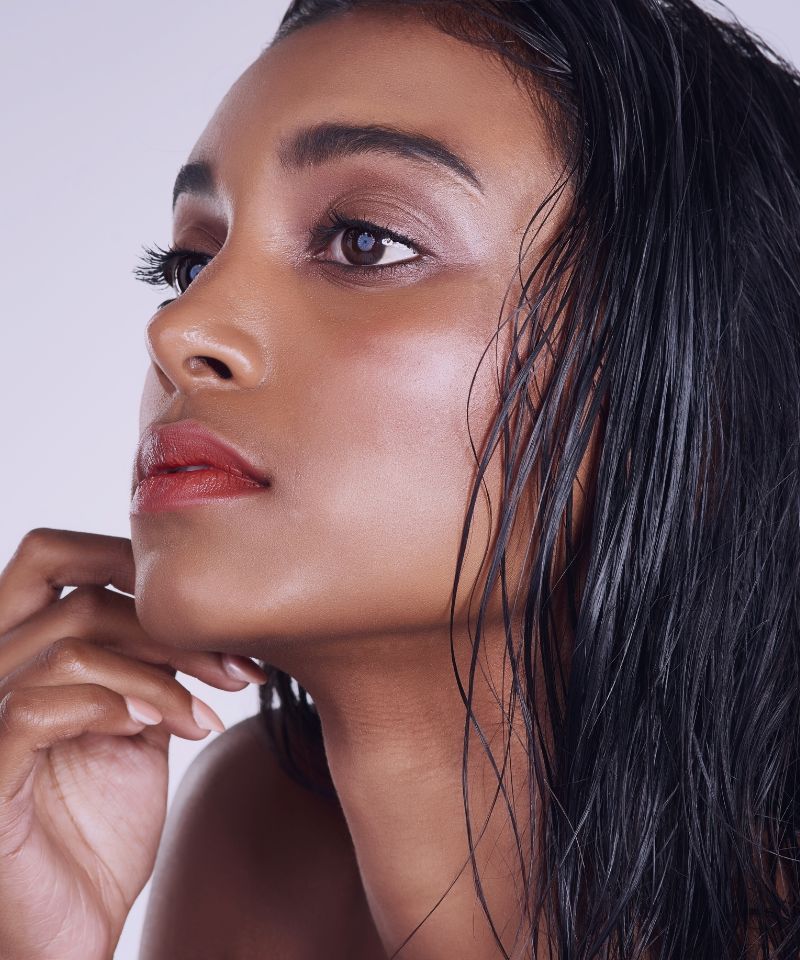
Here is a quick, step-by-step guide on how to start retinol with minimal side effects:
Step 1: Choose the Right Product
The first step of starting retinol is to choose the right product.
For beginners, starting with a low-concentration retinol product is usually best to allow your skin to adjust and get used to the active ingredient.
Over-the-counter retinols typically start from 0.25%, which is a good beginner point, and go up to 1%, which is considered a suitable option for an experienced user.
SN: I have a list of some of the best retinols for beginners down below.
Step 2: Start Slowly
While you may be eager to see results after incorporating retinol into your skincare routine, you must remember that slow and steady wins the race with this particular ingredient.
To avoid uncomfortable side effects, start by applying your retinol 2-3 times a week, and gradually increase the frequency of application over the next few weeks as your skin adjusts.
Step 3: Apply at Night
Retinol is a component that’s sensitive to sunlight, and UV rays can cause it to degrade.
In addition to that, the sped-up cellular turnover retinol causes can make your skin more sensitive to sunlight, which is why it’s best to use it at night.
After cleansing your face, apply a pea-sized amount of retinol on dry skin, wait for it to fully absorb, and follow up with the rest of your skincare routine.
Step 4: Use Sunscreen
One of the most important steps when incorporating retinol into your skincare routine is to use sunscreen daily.
As retinol can increase photosensitivity, applying a broad-spectrum SPF of at least 30 daily is crucial to protecting your skin from sunburns and damage.
Step 5: Listen to Your Skin
Remember, everyone’s skin is different.
If your skin becomes overly dry or irritated, it might be best to use retinol less frequently or switch to a lower concentration.
Always listen to your skin and adjust your skincare routine accordingly.
Step 6: Be Patient
Retinol is a long-term commitment, which is why being patient, adjusting your skincare routine, and staying consistent are essential for long-term results.
Retinol will start to show skin improvements after 4-12 weeks of use, but visible and consistent changes will take months to appear.
So give the product time to work, and don’t get discouraged if you don’t see immediate results.
Step 7: Increase Strength Slowly
Finally, once you feel like your skin has adjusted to retinol, you may consider increasing the strength.
Bumping up should usually take place in the span of several months or until you use up a bottle or two of the same concentration before you increase.
Some Side Effects of Using Retinol
While fantastic for overall skin improvement, retinol is a powerful ingredient that can cause initial side effects and discomfort.
Here are a few common side effects of using retinol:
- Skin dryness.
- Peeling or flaking of the skin.
- Redness.
- Irritation.
- Increased skin sensitivity, especially to sunlight.
- Initial acne breakouts, also known as purging.
- Sensations of skin burning or stinging.
- Changes in skin color (temporary).
6 Tips to Minimize and Manage Retinol Side Effects
Experiencing side effects when starting retinol is common, but there are measures you can take to soothe your skin and manage these effects.
Here are some tips for minimizing and managing retinol side effects:
Buffering
Retinol buffering can be an excellent method to reduce these side effects.
This involves applying a layer of moisturizer before applying your retinol.
This technique creates a ‘buffer’ between your skin and the retinol, reducing its harshness without compromising the benefits.
Adjust Frequency of Use
Everyone’s skin tolerance to retinol is different.
If you’re experiencing prolonged discomfort, it’s a sign you should reduce the frequency of application.
Start with two or three times a week, and increase the usage as your skin gets acquainted with it.
Switch To a Lower Strength
In some cases, it might be best to switch to a lower-strength retinol product. This will allow your skin to adjust without any additional discomfort.
Hydrate Your Skin
Dryness and peeling are common side effects when starting retinol. To counteract this, make sure you’re hydrating your skin adequately.
Using a hydrating serum or a rich moisturizer can help restore your skin’s moisture balance.
Use Soothing Products
When first starting retinol, avoid products that contain exfoliating acids, drying alcohol, or irritating fragrances, as these will prolong your discomfort.
Instead, include nourishing and skin-soothing products with ingredients like ceramides, niacinamide, panthenol, licorice extract, etc., which are known for their calming and soothing effects.
Don’t Forget Sunscreen
Since retinol increases your skin’s sensitivity to sunlight, always wear a broad-spectrum sunscreen with an SPF of at least 30 and reapply regularly, especially if you’re spending time outdoors.
This will protect your skin from sun damage and prevent any further irritation caused by sunburns.
The Best Retinols for Beginners
Here are some of the best retinols for beginners:
Vivant Skin Care Derm-A-Renew
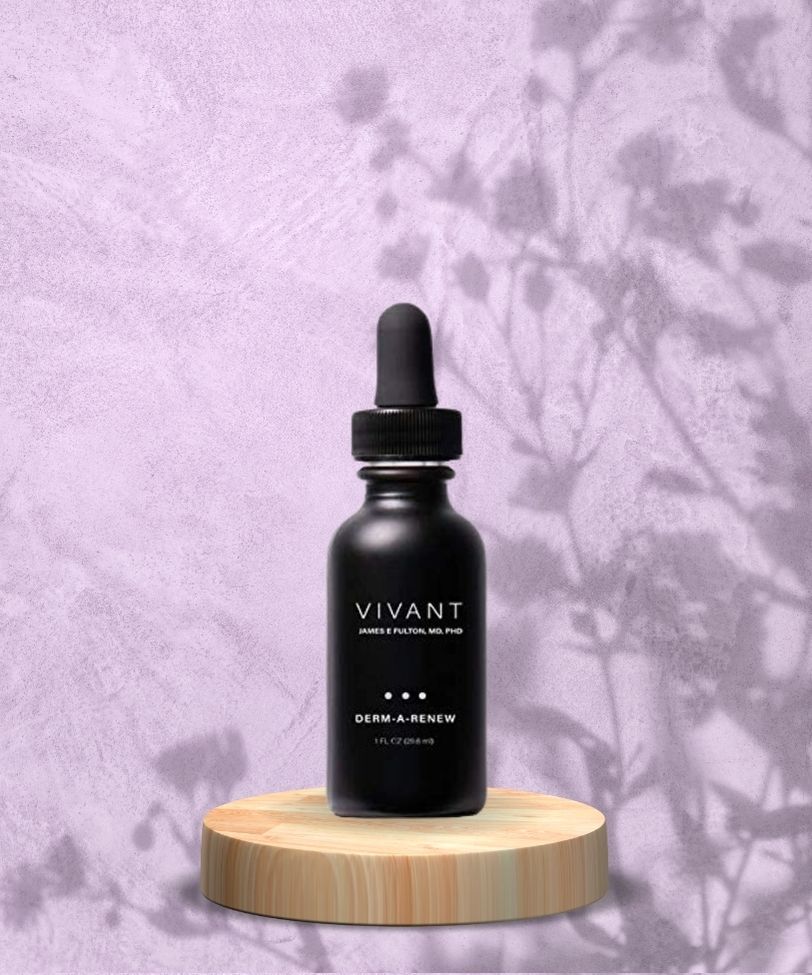
Vivant’s Derm-A-Renew is an entry-level retinoid perfect for those just starting their retinol journey.
It’s particularly suitable for sensitive skin, as it contains a mild concentration of retinol to gently stimulate cellular turnover without causing excessive irritation or dryness.
The formula is also packed with niacinamide, a potent skin-soothing ingredient that further helps reduce any potential side effects.
• Best for sensitive skin.
Vivant Skin Care Derm-A-Gel
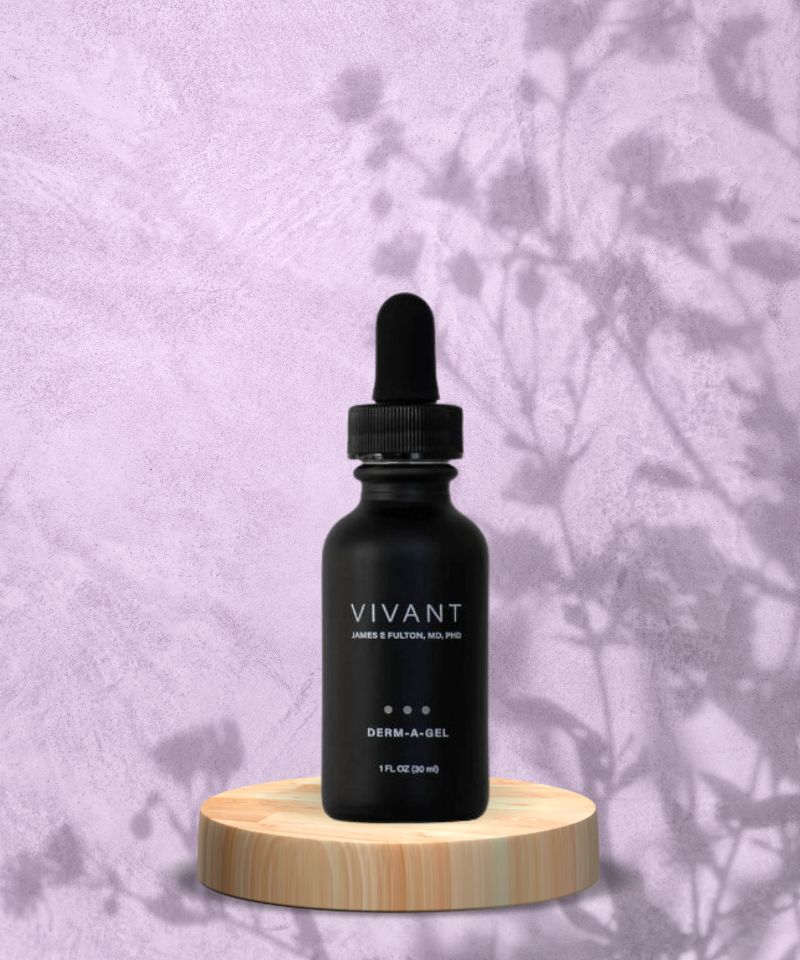
Vivant’s Derm-A-Gel is the top retinol for acne-prone skin.
This unique formulation targets both existing acne and prevents future breakouts, thanks to its potent blend of vitamin A propionate, niacinamide, glycine, and urea.
These ingredients work in harmony to accelerate cellular turnover, unclog pores, and reduce inflammation, leading to clearer, smoother, and healthier-looking skin, which makes this product an ideal choice for anyone battling with persistent acne.
• Best for acne-prone skin.
LilyAna Naturals Retinol Cream
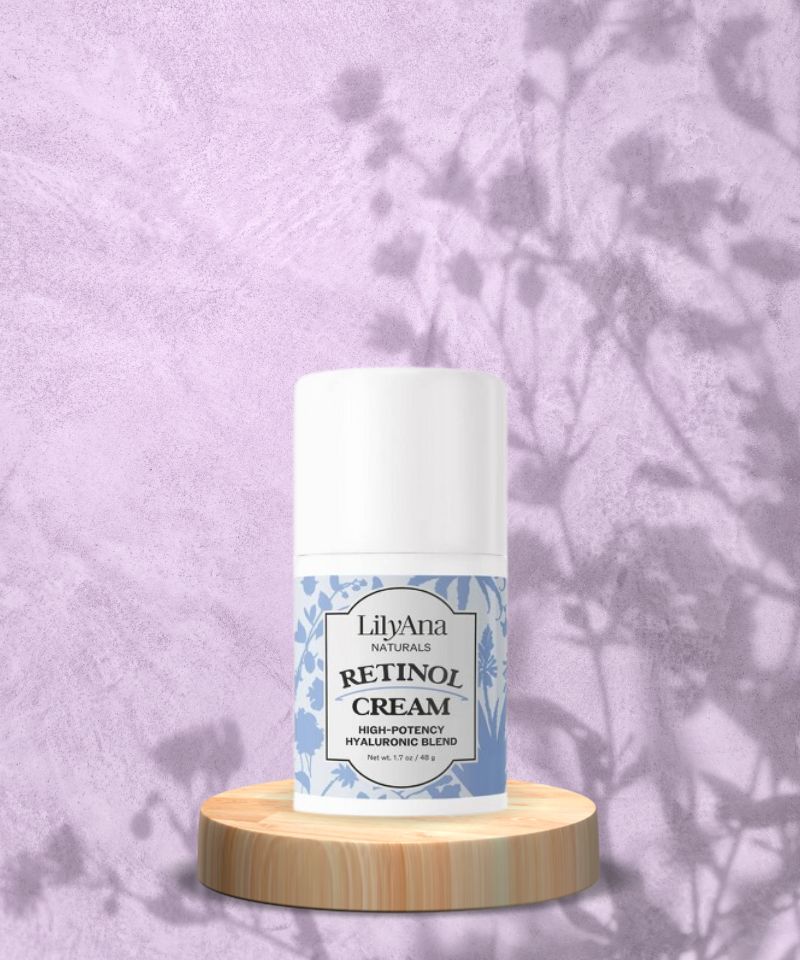
LilyAna Naturals Retinol Cream is the perfect choice for those with dry skin.
This retinol cream is formulated with hydrating and skin-soothing ingredients like hyaluronic acid, healing vitamin E, moisturizing shea butter, and calming aloe vera that help counteract the dryness often associated with retinol use.
In addition, it contains a moderate level of retinol to promote cellular turnover, leading to the reduction of fine lines and wrinkles and the visible improvement of skin texture.
• Best for dry skin.
Paula’s Choice 0.3 Retinol 2 Bakuchiol Treatment
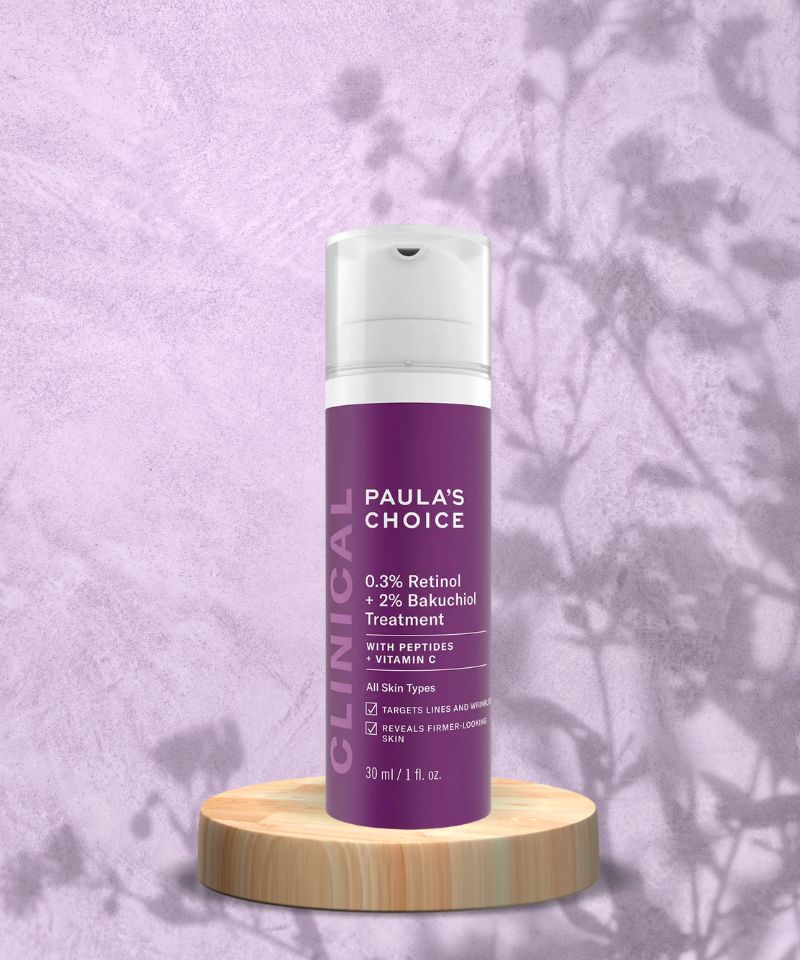
Paula’s Choice 0.3 Retinol 2 Bakuchiol Treatment is excellent for individuals dealing with dull skin.
his treatment combines the power of retinol and the plant-based antioxidant bakuchiol to stimulate skin renewal and brighten your complexion.
The product gently yet effectively accelerates cellular turnover, revealing brighter, more radiant skin underneath.
It also contains peptides that boost collagen production, leading to improved skin texture and elasticity.
• Best for dull skin.
La Roche-Posay Pure Retinol Serum With Vitamin B3
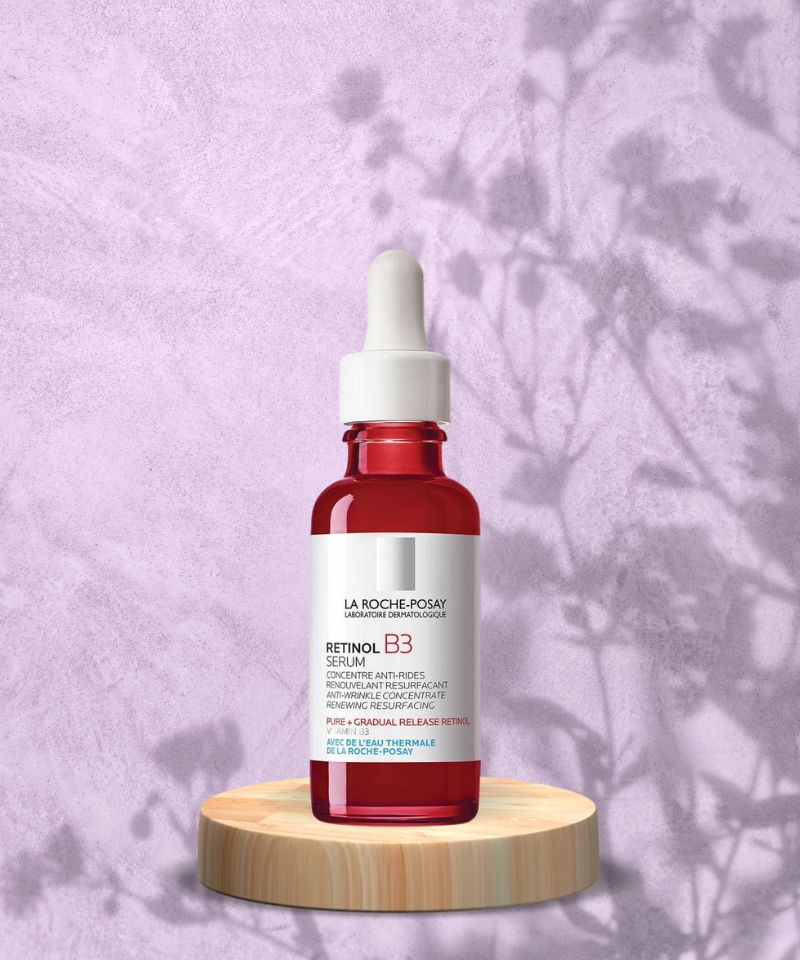
La Roche-Posay Pure Retinol Serum With Vitamin B3 is an exceptional choice for anyone who wants to target hyperpigmentation.
Its potent combination of pure retinol and vitamin B3 (niacinamide) significantly aids skin renewal while diminishing dark spots and evening out skin tone.
The serum not only boosts skin cell turnover but also has a calming effect, reducing skin redness and inflammation due to the presence of niacinamide.
This product is an excellent fit for anyone seeking a smoother, more radiant, and evenly-toned complexion or those dealing with active acne and scarring.
• Best for hyperpigmentation.
RoC Retinol Correxion Deep Wrinkle Facial Filler
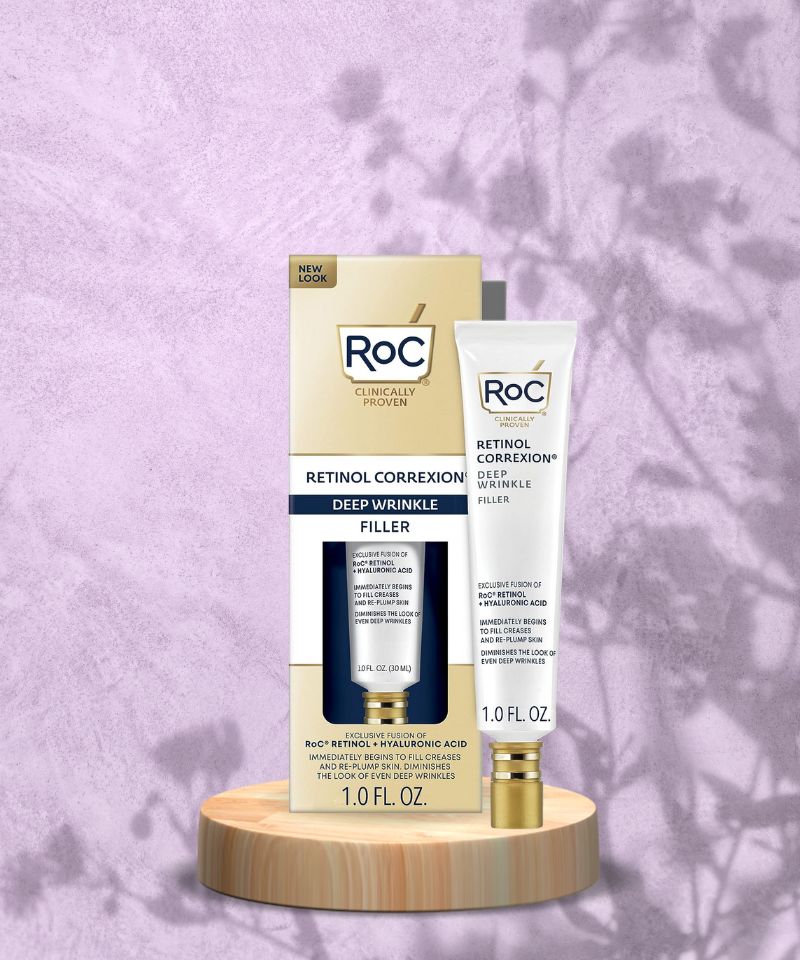
The RoC Retinol Correxion Deep Wrinkle Facial Filler is a fantastic option for those looking to combat the signs of aging.
This product is expertly designed to target deep wrinkles and fine lines, thanks to its potent combination of pure retinol and hyaluronic acid.
The retinol accelerates cell turnover, gradually reducing the appearance of wrinkles, while the hyaluronic acid adds an intense boost of hydration, plumping the skin for a smoother, more youthful look.
Even though this formula is robust, it remains gentle enough for daily use, making this product an excellent choice for anyone seeking a smoother and more youthful complexion.
• Best for lines and wrinkles.
PS: Want to learn more about retinol?
Here are some of my previous articles you may also want to read:

My name is Simone and I am a certified skin specialist. I created this website to teach my readers how to take great care of their skin and I also like to occasionally share my honest opinions on skincare products I’ve tried. You can learn more about me here.
